
Tips for Using a Knee Walker
Injuries can be a real downer, especially when they limit your mobility. Traditional crutches can be a literal pain to use, and that's where knee walkers come in.
Easier to maneuver and more comfortable, these devices are often a lifeline for those who've had to deal with foot or leg issues.
In this comprehensive guide, we'll explore some invaluable tips for using a knee walker.
Tips for Using a Knee Scooter
To use a knee walker to its full potential, there are a few things you need to know. We're not just talking about the basics here, but also some clever tricks to make your journey smoother. Let's dive in!
1. Adjusting Your Knee Walker: Fit Comes First
Ensuring the knee walker is adjusted to fit you perfectly is the first step towards a comfortable ride. Set the knee pad and handlebars to match your height. You should be able to stand upright comfortably, with your injured knee resting on the pad and your hands comfortably reaching the handlebars.
2. Mastering the Art of Balance
Learning how to balance yourself on a knee walker is vital. It might seem tricky at first, but with a little practice, you'll soon be wheeling around with ease. Start by leaning your weight on the uninjured leg while you get the hang of it. This simple tip will go a long way in boosting your confidence.
3. Learning to Steer: The Key to Maneuverability
Steering your knee walker isn't as straightforward as it seems. However, once you get the hang of it, you'll find your knee walker is surprisingly nimble. The trick? Lean slightly in the direction you want to turn. Trust us, it's as easy as pie once you get a feel for it.
4. Practice Safety First
Safety should always be your top priority when using a knee walker. Always make sure your walker's brakes are working properly before setting off. And remember, smooth and steady wins the race – there's no need to rush.
5. Get to Grips with Going Uphill
Going uphill can be a daunting task for newbie knee walker users. However, by placing most of your weight on the handlebars, you'll make it easier for the wheels to grip the surface and propel you forward. Patience and practice make perfect!
6. Dealing with Downhill: Control is Key
Navigating a downhill slope? You'll need to have a good handle on your knee walker's brakes. Maintain a slow, steady pace and be prepared to stop if needed. It's better to be safe than sorry.
The Do's and Don'ts of Using a Knee Walker
1. Don't Use on Slippery Surfaces
While knee walkers are generally sturdy, they can become unstable on slippery or uneven surfaces. For your safety, it's best to stick to dry, even ground.
2. Do Maintain Your Knee Walker
Regular maintenance is key to keeping your knee walker in tip-top shape. Make sure the wheels are in good condition and that the brakes are working properly.
3. Don't Overload Your Walker
It might be tempting to carry heavy items on your knee walker, but this can lead to instability. Keep the load light for a safer journey.
FAQs About Using a Knee Walker
Q: Can I use a knee walker if I've never used one before?
A: Absolutely! Knee walkers are designed to be user-friendly. It might take a bit of practice, but you'll get the hang of it in no time.
Q: Is it safe to use a knee walker on stairs?
A: No, it's not recommended to use a knee walker on stairs due to safety concerns. Instead, consider using crutches or a handrail for support.
Q: Can a knee walker be used on all types of surfaces?
A: While knee walkers can handle most surfaces, they can become unstable on slippery or uneven terrain. Always use caution.
Q: How do I adjust my knee walker?
A: Most knee walkers come with adjustable handlebars and knee pads. Check the user manual for specific instructions.
Q: Can I use a knee walker with either leg?
A: Yes, knee walkers can be used with either the left or right leg.
Q: How often should I maintain my knee walker?
A: It's recommended to check your knee walker's condition regularly, especially the wheels and brakes. Regular maintenance will ensure a smooth and safe ride.
Conclusion
When it comes to navigating life with an injury, knee walkers can be a real game-changer. These handy tips for using a knee walker will help you to make the most of your mobility device, ensuring comfort, safety, and maneuverability. So here's to a smoother, easier journey on the road to recovery!
Recommend Products
-
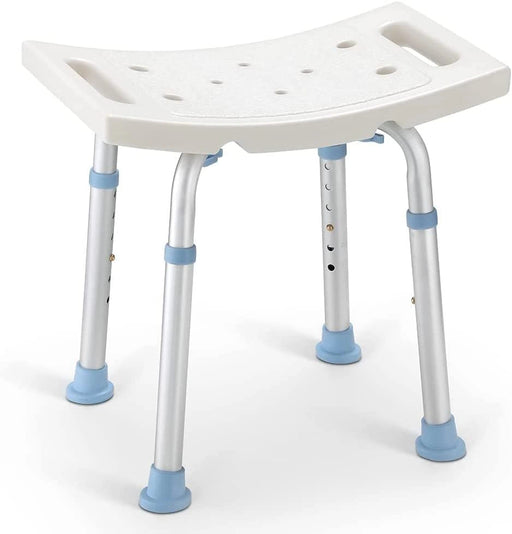 Sale
Sale
Standard - 300LBS Capacity Shower Stool
Original price $51.99From Original price $28.99Original price $51.99Current price $28.99From $28.99Current price $28.99OasisSpace Medical Square Shower Stool for Bathtub OasisSpace Square Shower Stool for Bathtub is approved as the highest standard(FDA) for medical...
View full detailsSaleOriginal price $51.99From Original price $28.99Original price $51.99Current price $28.99From $28.99Current price $28.99 -
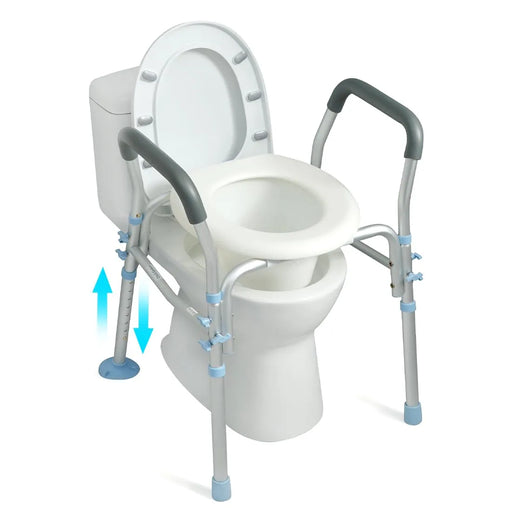 Sale
Sale
300LBS Capacity Raised Toilet Seat with Arms
Original price $120.99From Original price $69.99Original price $120.99Current price $69.99From $69.99Current price $69.99OasisSpace Raised Toilet Seat with Arms - Safe and Convenient OasisSpace Raised Toilet Seat with Arms provides stable support for users to sit dow...
View full detailsSaleOriginal price $120.99From Original price $69.99Original price $120.99Current price $69.99From $69.99Current price $69.99 -
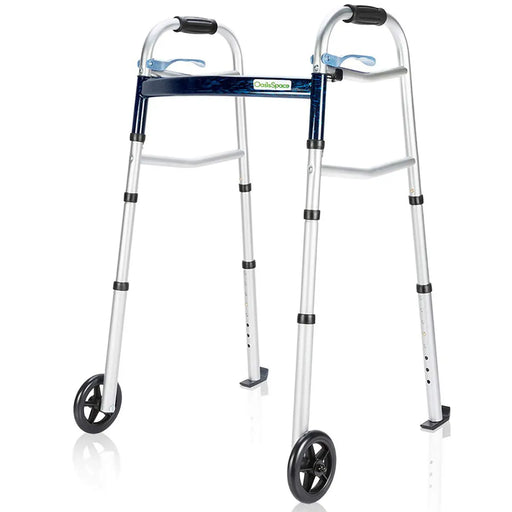
350LBS Capacity 2 Wheel Walker
From Original price $39.99Original price$39.99From $39.99Current price $39.99Product Advantages OasisSpace's 350LBS Capacity walker offers a fusion of lightweight design and sturdy support, crafted from high-grade anodized ...
View full detailsFrom Original price $39.99Original price$39.99From $39.99Current price $39.99 -
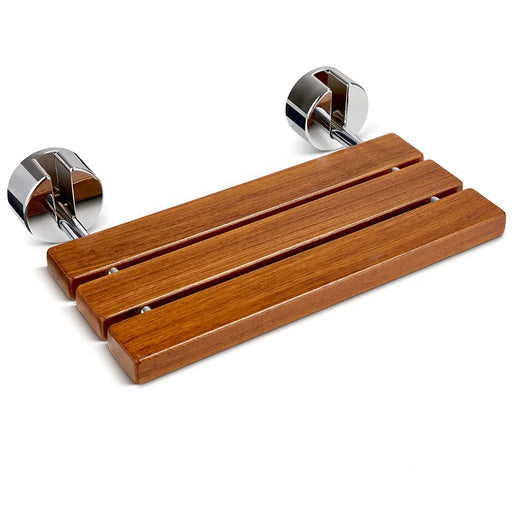
Wall Mounted - 400LBS Capacity Teak Folding Shower Seat
From Original price $131.99Original price$131.99From $131.99Current price $131.99Advantages OasisSpace Teak Wall-Mounted Shower Seat adopts a folding design, which can save space to the greatest extent and can be folded up at a...
View full detailsFrom Original price $131.99Original price$131.99From $131.99Current price $131.99 -
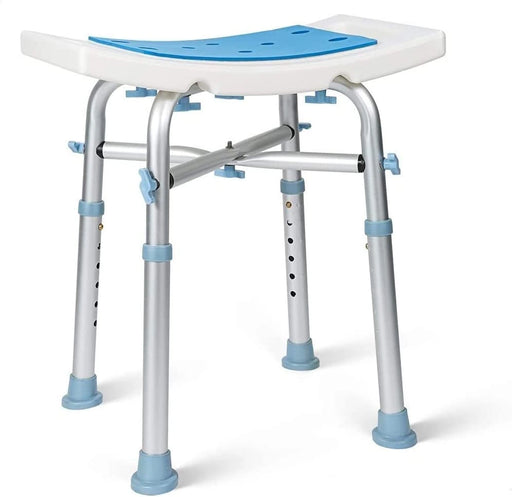 Sale
Sale
Padded & Bariatric - 500LBS Capacity Heavy Duty Shower Stool
Original price $57.99From Original price $36.99Original price $57.99Current price $36.99From $36.99Current price $36.99OasisSpace Medical Heavy Duty Bariatric Shower Stool OasisSpace Medical Heavy Duty Bariatric Shower Stool is approved by the FDA, which is the hig...
View full detailsSaleOriginal price $57.99From Original price $36.99Original price $57.99Current price $36.99From $36.99Current price $36.99 -
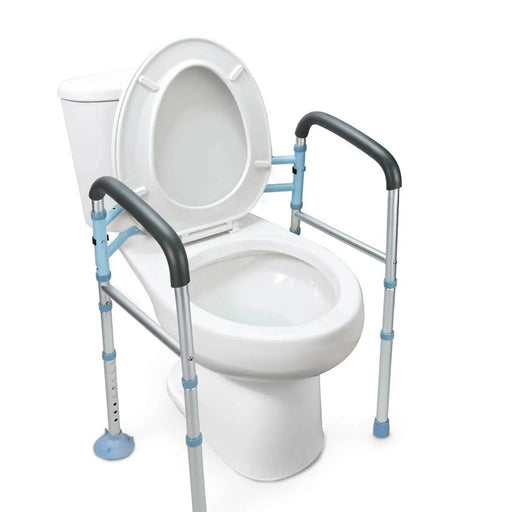 Sale
Sale
300LBS Capacity Stand Alone Toilet Safety Rail
Original price $69.99From Original price $55.99Original price $69.99Current price $55.99From $55.99Current price $55.99OasisSpace Toilet Safety Rails - Fit Any Toilet OaisSpace stand-alone toilet safety rails provide sturdy support for the elderly and people with ...
View full detailsSaleOriginal price $69.99From Original price $55.99Original price $69.99Current price $55.99From $55.99Current price $55.99







